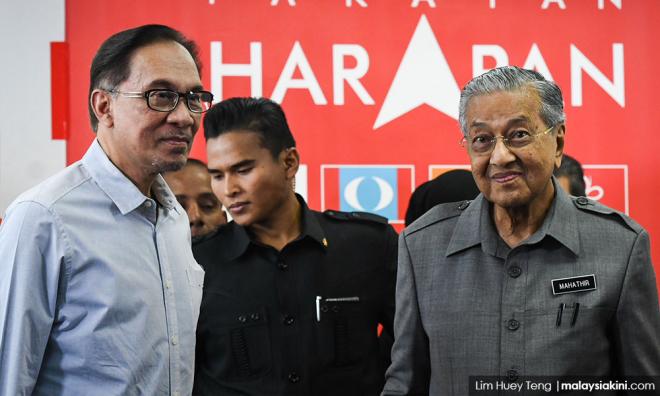
I don’t give a damn who the next Prime Minister will be if the next government cannot last longer than the current one.
Instead of just fighting over the choice of the next PM, may I suggest Harapan 2.0 to fight over the allocation of ministerial portfolios in one go? Fight for it all now so that, if you can reach a deal, that deal will at least last longer than six or 12 months.
Let’s be frank. The fight over PM-ship is not just a fight of two old men over their personal ambition (“to save Malaysia” if you prefer more heroic imagery) but also an extended fight of prospective government parties over ministerial portfolios and resources.
Make no mistake. I have absolutely no problems with politicians wanting to be PM for the first, third, or nth time. Asking politicians to not pursue power is as naive as asking businesses to not pursue profit.
Neither am I interested to know which politician has wronged others more. It would be a miracle if we still had angels amongst seasoned politicians.
Realistically, as a citizen, all I humbly ask now is a functioning government and a functioning opposition. I welcome any change that would make either the government, the opposition, or both more functioning and stable. Surely this expectation is not unreasonable!
Can Harapan 2.0 avoid Harapan 1.0’s troubles?
There is a concerted effort in Malay, English, and Chinese (and likely in other languages which I don't read) to create a public expectation that wresting power from Muhyiddin is the most urgent task.
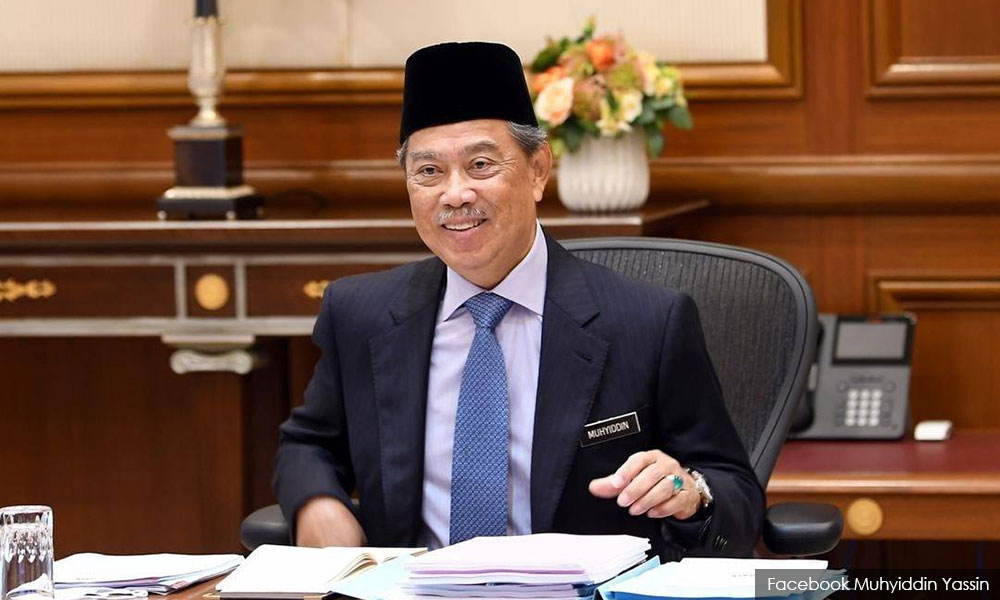
Ironically, Muhyiddin’s police and Attorney-General’s Chambers are making the case for his opponents that he must lose power immediately for Malaysians to have free air to breathe.
While those accused in high-profile corruption cases walk free, the citizens, media, and politicians can be charged, filed for contempt, or investigated over little things, from a casual expression of profanity, readers' comments on a news article, media reporting on an immigration raid, an activist's criticism of PAS, and even a former deputy minister enquiring on the policy of child marriage.
For a Harapan 2.0 solution to be able to save Malaysia, it must be able to last longer than Muhyiddin’s government and hopefully as long as Harapan 1.0.
The public campaign for a Harapan 2.0 quick fix conveniently ignores three possibilities:
1. Harapan 2.0 may collapse after a few months over succession issues and conflicts over ministerial portfolios;
2. Harapan 2.0 may do even worse if an election needs to be called after its collapse;
3. There may not be a Harapan 2.0 government at all if Muhyiddin wants and gets a snap poll.
Three factors brought down Harapan 1.0: communalist attacks by the opposition, the succession issue, and inter-ally allocation of ministerial portfolios and resources.
Unless an inter-party deal is reached to reconfigure politics, Umno and PAS attacking Harapan 2.0 for selling out Malays and Islam will be a given.
The proposed Mahathir-Anwar ticket for six months actually leaves the succession question wide open: if Warisan cannot accept Anwar as PM now, can it accept him six months later? If not, is it a replay of the “Mahathir till GE15” soap opera or a just six-month postponement of the next civil war?
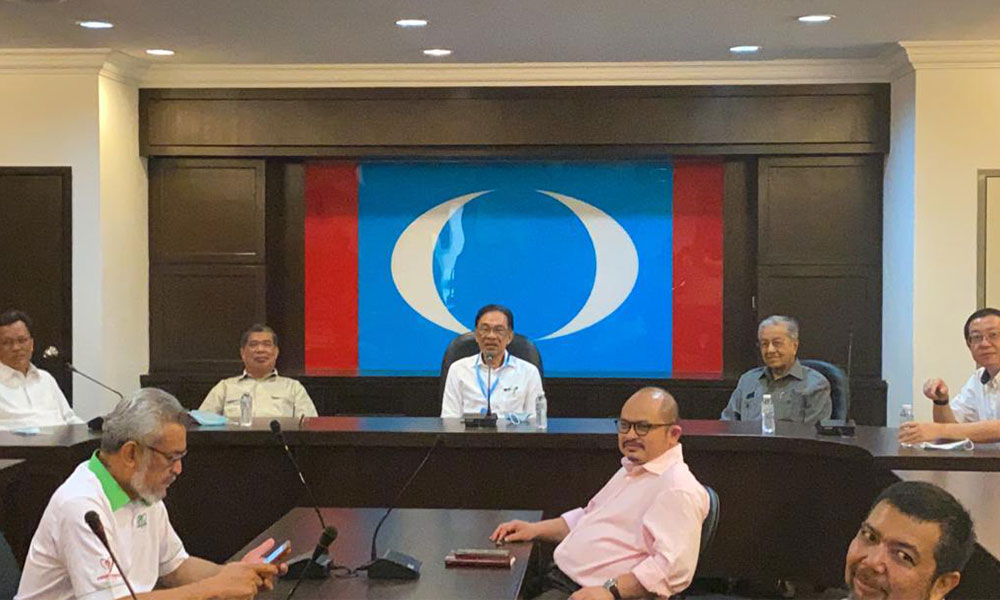
As Harapan 2.0 would need the defection of GPS and a few MPs from Bersatu/Umno to have some 130 seats as touted, how would administrative portfolios be divided?
If the kingmakers are to get a disproportionate share of ministerial jobs like Azmin’s Gang of 10 does in PN now, can DAP and PKR swallow it? Or, would they do to Harapan 2.0 what Umno did to PN? Would the Harapan 2.0 administration be bloated and its backbenchers be sitting in lucrative GLC positions too?
These are inconvenient questions the pro-Harapan 2.0 “crisis-now” campaign is avoiding. But if Harapan 2.0 ends up as a “reformed version of PN” rather than “the restoration of Harapan 1.0”, both the reform agenda and pro-reform advocates in politics and civil society may be discredited.
Already, the Isma president is calling for Malaysia to become a semi-democracy. I can’t help but think of Germany’s Weimar Republic (1918-1933) before the rise of the Nazi.
Constructive vote of no-confidence
The Weimar Republic may qualify as the perfect case of how a multiparty democracy can go wrong and bring chaos and catastrophe. It had 14 Chancellors (Prime Ministers) in 15 years, with the longest Chancellor lasting for two years and 61 days. The shortest? Only 56 days.
Weimar governments were unstable because their parties were weak, often took extreme positions, and could not compromise. Chancellors were toppled without ensuring the next one would work.
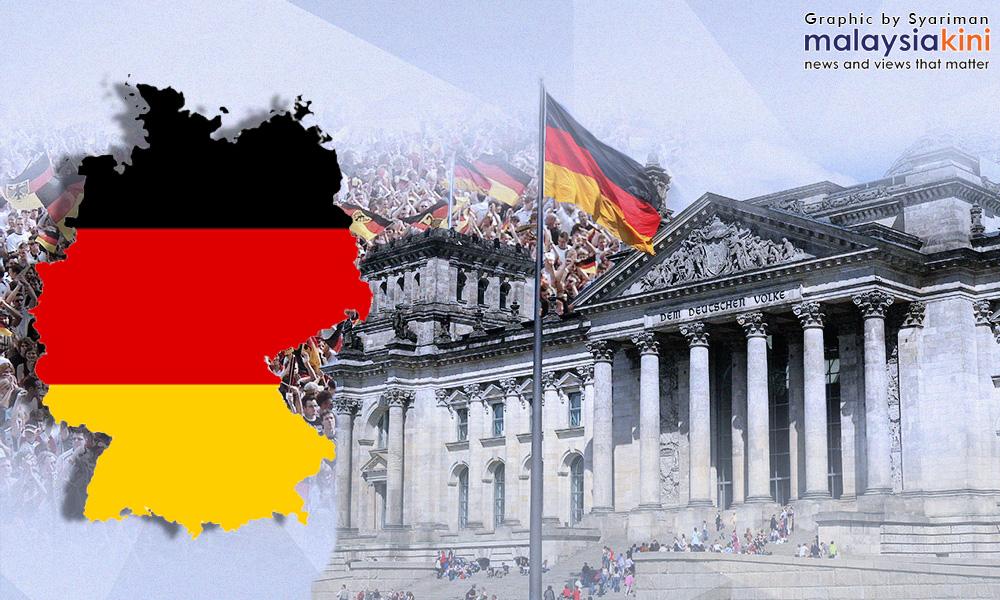
Taking Weimar’s painful lesson, post-war Germany had the mechanism of a "constructive vote of no-confidence". You cannot overthrow a Chancellor through a vote of no-confidence until you have a new Chancellor candidate who can command a majority. This has greatly stabilized German politics that in seven decades, only two attempts were made, with one successful.
In October 1982, when the Free Democrats (FDP) pulled out from its coalition government with the Social Democrats (SPD) over welfare spending, Helmut Kohl from the Christian Democrats (CDU) was installed to replace Helmut Schmidt from SPD. Fresh elections were called the following March, which Kohl’s new coalition would win.
The "constructive vote of no-confidence" mechanism is now being adopted by a few countries such as Belgium, Israel, and Spain which are known for their political fragmentation.
I am not calling for the introduction of a "constructive vote of no-confidence" in Malaysia as it would require a constitutional amendment. That would be putting the cart before the horse when currently, any inter-party deals are out of sight.
I am calling for the public to put political stability first in considering the options before us. The issue before us is more than Mahathir or Anwar becoming Prime Minister, or how long Mahathir should hold the top job.
Not even a snap election will solve the impasse as we would likely have a hung parliament again since East Malaysian seats are fluid and neither PN nor Harapan can possibly win close to 112 out of 165 seats in West Malaysia.
Party-hopping and realignment may happen after the snap poll. If Malaysia looks increasingly Weimar, Isma would look prophetic.
Stability first
I have no doubt many who want a Harapan 2.0 quick fix have good intentions. But lest we forget, the road to hell is also paved with good intentions.
It is in times of crisis that we must all the more stay calm and sharp, instead of being swayed by fear and anxiety. We must recognise inconvenient truths and not operate on wishful thinking.
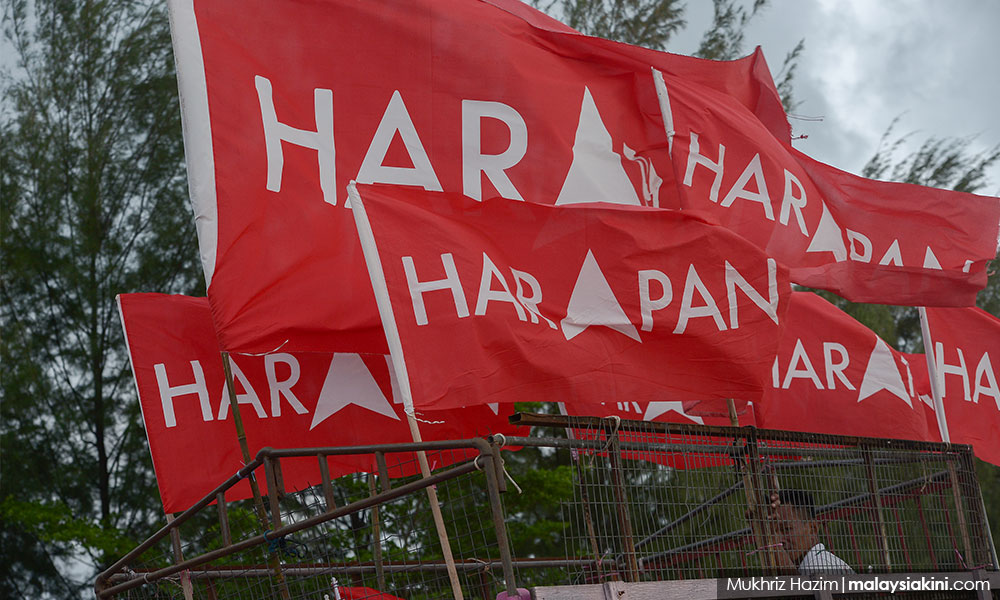
Nothing on the surface now suggests to me that Harapan 2.0, as an unstable opposition bloc (remember, it must have GPS and some Bersatu/Umno turncoats), would be able to transform itself into a stable government, like the cursed frog transforming back into a prince with a princess’ kiss.
Don’t be fooled that 129 or 131 Parliament seats would guarantee stability. When Harapan 1.0 fell, it had 139 seats. When politicians are not desperados or gamblers, politics can be stable, as in Denmark with 14 minority governments in 30 years.
Some politicians are men in a rush because of their age. But the nation will live on after them and we must have more long-term vision. Fulfilling their saviour-complex or lifelong ambition is not our mission.
Yes, the nation is in danger as the Muhyiddin government gets increasingly cronyistic and authoritarian. Installing an unstable new government does not solve it but may instead sink Malaysia deeper when GE15 comes.
Mahathir and Anwar can continue to work on overthrowing Muhyiddin and becoming Prime Minister. Until they get the number, what they owe us is a functional opposition.
A functioning opposition will have shadow ministers and alternative policies for Covid-19 and the economy. It will proactively challenge the paralyzing of the Parliament, instead of producing endless dramas on “who wants to be the next PM”.
Harapan 2.0 should now be rallying the public against the abuse of GLCs, advocating for a separate Public Prosecutor’s Office to end selective prosecution and impunity, introducing recall elections in Selangor, Penang, and Sabah, as well as closing gaps of expectations between its different electoral bases to build a 55% pro-reform social coalition for GE15. No more incessant fighting, please.
Let’s be angry with Mahathir and Anwar for the jobs they don’t do, instead of the job they are dreaming of. Tell this to your Harapan 2.0 parliamentarians if you are angry like me.
WONG CHIN HUAT is an Essex-trained political scientist working on political institutions and group conflicts. He currently leads the clusters on the electoral system and constituency delimitation in the government’s Electoral Reform Committee (ERC). Mindful of humans’ self-interest motivation while pursuing a better world, he is a principled opportunist. - Mkini



No comments:
Post a Comment
Note: Only a member of this blog may post a comment.